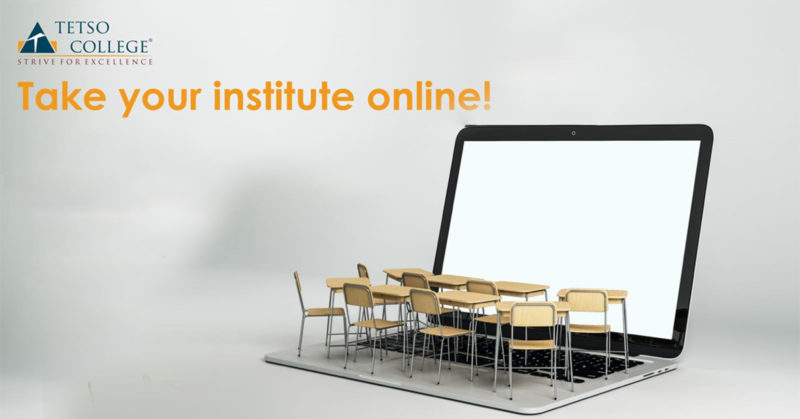Keeping in mind the unprecedented global crisis that is COVID-19 which could possibly have far reaching consequences across multiple industries and sectors including education, Tetso College conducted an online webinar on the use and need of online management systems for educational institutions and stakeholders from across the state on 28th April, 2020.
The purpose behind this webinar was to not only share and guide the participating institutions and educators on how to start their own online programs but also learn from each other and support one another in this mission to ensure education continuity.
Kvulo Lorin, Director of Tetso College, initiated the proceedings by introducing the topic and sharing the vision and mission of the college besides highlighting the various online activities the college has been organizing till date. Stating that Tetso has been using Google for Education since 2016, the director highlighted that the college has been able to move most of the learning process online during this period of lockdown and also been able to integrate online fee payments and admission process.
Dr. Hewasa Lorin, Vice-Principal, Tetso College, shared the college’s experiences with Google for
Education from the past four years which she said has been extremely helpful for both students and teachers. The vice-principal shared that Google Classroom for students was used to share reading material, assign and collect assignments, and also create and conduct online tests using Google Forms prior to the lockdown. After the lockdown, the college integrated virtual teaching with the help of Google Hangouts Meet with which 44 teachers have been able to utilize the tool to conduct virtual classes for post-graduate, under-graduate, and higher secondary levels, she added.
Some initial challenges on the transition from physical learning to virtual learning presented by Dr. Hewasa were issues from students regarding excessive data consumption, cyber-bullying fears from staff, attendance problems, and noise interruptions, which were rectified by means of corrective measures on the part of the college administrative team.
However, on the bright side, the adoption of virtual classes proved to be a boon and paved the way for more opportunities, according to her. There was greater interaction and questions from students who seemed more comfortable opening up since there was less peer pressure as compared to a traditional classroom setting, she revealed and added that virtual learning “encourages self-learning and reduces rote-learning.” Another visible benefit of the digital classroom is that teachers can cater to individual student needs, Dr. Hewasa remarked.
The presentation on G Suite for Education was delivered by Reshiyunen, IT Manager, Tetso
College, where he thoroughly provided step by step instructions and requirements involved in setting up G Suite. He shared that the basic prerequisite for an institution to sign up is to be government recognized, formally accredited delivering nationally or internationally approved certifications at primary, secondary, or third level. Further, an institution needs to have a registered domain/website, he added. He also presented on how to create a virtual classroom using Google Classroom and provided information on other learning resources as well.
The hour-long webinar concluded with a Q&A session which witnessed several questions from the participants being answered by the resource persons.

